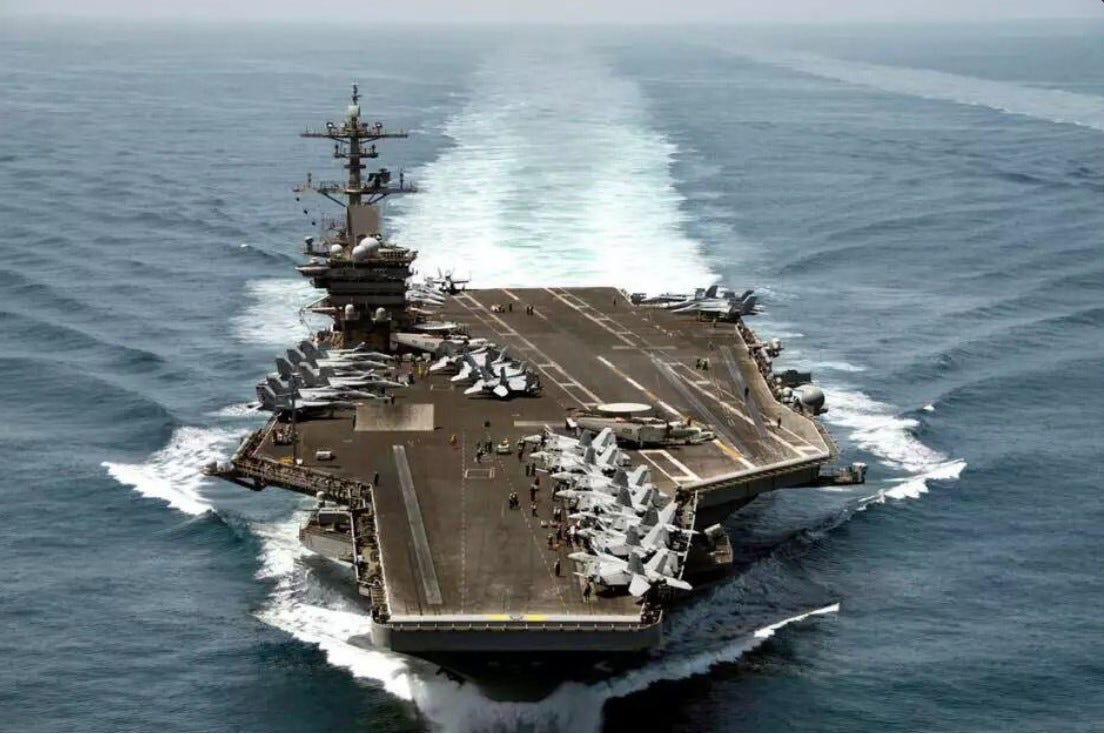Subtle US messages fall on Netanyahu and Israel’s deaf ears
The USS Theordore Roosevelt redeploys to the Indo-Pacific. Credit: US Navy
Thank you for joining me today. Thousands across the globe are avid readers and listeners of The Turbulent World. Join them in helping me maintain and expand the column and podcast by becoming a paid supporter. Paid subscribers have access to the full archive, exclusive posts and polling, can leave comments, join debates, and know they are supporting independent writing, reporting, and analysis that lets the chips fall where they fall. You can contribute by choosing one of the subscription options.
To listen to the podcast or watch the video, please subsribe.
Thank you for your support and loyalty.
A US decision to dial back its reinforced military presence in the Middle East suggests that America’s commitment to defend Israel could be less ironclad than the Biden administration would like the world to believe.
The United States has not officially framed its decision to redeploy the USS Theodore Roosevelt aircraft carrier to the Indo-Pacific after several weeks in the Middle East as a subtle message to Israeli Prime Minister Binyamin Netanyahu that US support is not unconditional.
Nor has the US suggested that the withdrawal constitutes a warning to Israel not to escalate tension with Iran and/or Hezbollah, the Iranian-backed Lebanese Shiite militia.
As a result, any suggestion that there is more than meets the eye to the withdrawal of the Theodore Roosevelt amounts to reading tea leaves.
Even so, earlier this month, some US officials privately suggested that the drawdown of forces could pressure Mr. Netanyahu to be more flexible in US-Qatar-Egypt-mediated Gaza ceasefire talks.
Keep reading with a 7-day free trial
Subscribe to The Turbulent World with James M. Dorsey to keep reading this post and get 7 days of free access to the full post archives.

